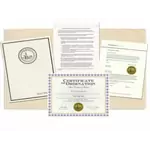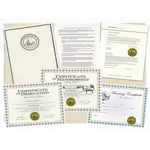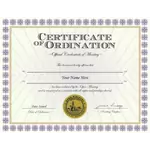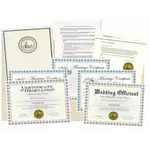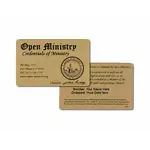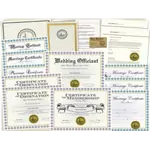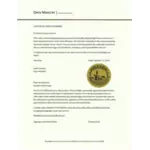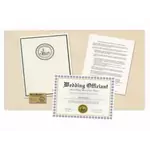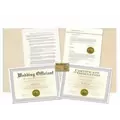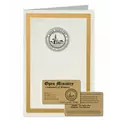State Marriage Laws and Information
Since 2010, Open Ministry has been ordaining and helping people all over the world perform weddings, ceremony and other sacerdotal duties. This page focuses on requirements and information for Colorado; Scroll down to the bottom of the page for links to other states.
How to get ordained and perform a wedding in Colorado
If you are planning to get ordained in Colorado or you have been asked to perform a wedding ceremony in Colorado, or simply need to to find an ordained minister in Colorado to perform your wedding ceremony.
This ordination information forColorado is provided below in an easy five step layout which is designed help walk you through the most common steps on registering to become a minister for Colorado and how perform a wedding ceremony in Colorado.
Step 1 - Get Ordained Online for free with Open Ministry
Step 1: Get Ordained in Colorado with Open Ministry
Getting ordained in Colorado has never been simpler or more affordable. Open Ministry provides a fast, free ordination you complete entirely online-often in under 12 hours-with digital confirmation delivered free and printed certificates for a modest lifetime fee.
When you get ordained in Colorado through Open Ministry, you’ll enjoy:
- Complete online in minutes - no paperwork required.
- Free emailed ordination - get it almost instantly.
- Printed certificate options - check out the store for info.
- Approved credentials - valid in every Colorado county.
- Established network - thousands of ordained ministers since 2010.
How It Works
- Select the Get Ordained in Colorado button.
- Enter your information in our secure portal.
- Get your digital ordination and optionally order printed certificates.
As a recognized ordained minister in Colorado, you’ll have the legal right to solemnize marriages and lead ceremonies across the state.
Secure Your Colorado Ordination Now
Free digital ordination-printed certificates available for a small fee.
Step 2 - Contact The County Clerk
How to Register to Officiate a Marriage in Colorado
Next, contact the office of your local marriage authority (typically your county clerk in Colorado). Let them know that you are a ordained minister with Open Ministry in California, and ask them what information the will require of you, to officiate a marriage in Colorado. Most clerks and governing agencies may require that you present them with a physical copy of your ordination record.
When speaking with the county clerk; it can be helpful to use the following phrases.
- What agency or department issues marriage licenses in your county and how may I contact them?
- I am an ordained minister with a church in California and I would like to register as a wedding Officiant in your county to perform and solemnize weddings.
- I have my Letter of Good Standing and/or Ordination Credential as proof of my ministry and ordination.
- What additional documentation is required for me to register as a wedding Officiant in your county or state?
Step 3 - Get registered to perform a Marriage
License to perform a wedding in Colorado
After you've contacted your marriage authority, you will want to visit our bookstore to get physical copies official credentials for presentation and your records. (See Colorado State Statutes for More Specific Requirements )
When registering in Colorado you may be asked to display proof of your ordination to the county clerk's before they will accept the marriage license as having been legally solemnized. We typically advise ministers of Colorado to get a Complete Minister Package for Colorado which includes your Letter of Good Standing (the live signed and notarized physical copy of your standing with our ministry).
Having your physical copies credentials provides peace-of-mind to couples and others that you intend to marry. Additionally, we recommend at least 4 weeks between the date of the wedding ceremony and your order, to ensure that you receive all of your materials and are able to register in time. Please note that every state and county can impose different requirements. This may include other nominal fees and additional paperwork that may need to be completed before the ceremony can take place.
It is important to note that some county clerks in Colorado may require wedding officiants to attach a statement which asserts some of the elements in the marriage license upon submission, including the following:
- The time and location at which the wedding took place
- The names and places of residence of all official witnesses
- The religious organization in which the officiant is ordained
- The printed name and address of the officiant
Please note that, when filling out a marriage license, that Colorado State may request you use the title "Minister" or "Reverend". The County Clerks may also require you enter your denomination, you can use "Non-Denominational". Failing to state a denomination may result in rejection and could require a duplicate marriage license.
Step 4 - How to Perform the Wedding
How to perform a wedding in Colorado
Once you have completed of the above, you are ready to perform the wedding! Be sure that the couple has picked up their Colorado state issued marriage license from the appropriate office. Colorado marriage licenses valid for a set number of days, and there may be a waiting period between when the couple receives the marriage license in Colorado and when the ceremony may be legally performed in Colorado. This information should be written on the license and followed to ensure the ceremony is recorded properly.
Please be aware that the signed license must be returned to the issuing office in Colorado before the time limit is reached. Check the marriage license for the exact dates. Once the the previous matters have been addressed, officiating a wedding in Colorado can be a great and wonderful experience.
If you have any comments or issues as a wedding officiant in Colorado, or after you have been ordained, or would like to just asking for guidance on how to perform a wedding ceremony in Colorado. We recommend that all new Colorado wedding ministers who have issues or concerns about the ceremony read over our helpful guides.
Colorado
14-2-109 Solemnization and registration
(1) A marriage may be solemnized by a judge of a court, by a court magistrate, by a retired judge of a court, by a public official whose powers include solemnization of marriages, by the parties to the marriage, or in accordance with any mode of solemnization recognized by any religious denomination or Indian nation or tribe. Either the person solemnizing the marriage or, if no individual acting alone solemnized the marriage, a party to the marriage shall complete the marriage certificate form and forward it to the county clerk and recorder within sixty days after the solemnization. Any person who fails to forward the marriage certificate to the county clerk and recorder as required by this section shall be required to pay a late fee in an amount of not less than twenty dollars. An additional five-dollar late fee may be assessed for each additional day of failure to comply with the forwarding requirements of this subsection (1) up to a maximum of fifty dollars. For purposes of determining whether a late fee shall be assessed pursuant to this subsection (1), the date of forwarding shall be deemed to be the date of postmark.
(2) If a party to a marriage is unable to be present at the solemnization, such party may authorize in writing a third person to act as such party's proxy. If the person solemnizing the marriage is satisfied that the absent party is unable to be present and has consented to the marriage, such person may solemnize the marriage by proxy. If such person is not satisfied, the parties may petition the district court for an order permitting the marriage to be solemnized by proxy.
(3) Upon receipt of the marriage certificate, the county clerk and recorder shall register the marriage.
Title 14: Domestic Matters - Article 2: Marriage and Rights of Married Women - Part 1: Uniform Marriage Act
Source: L. 73: R&RE, p. 1019, § 1. C.R.S. 1963: § 90-1-9. L. 79: (1) amended, p. 637, § 1, effective May 25. L. 89: (1) amended, p. 781, § 1, effective April 4. L. 91: (1) amended, p. 359, § 19, effective April 9. L. 93: Entire section amended, p. 438, § 3, effective July 1.

